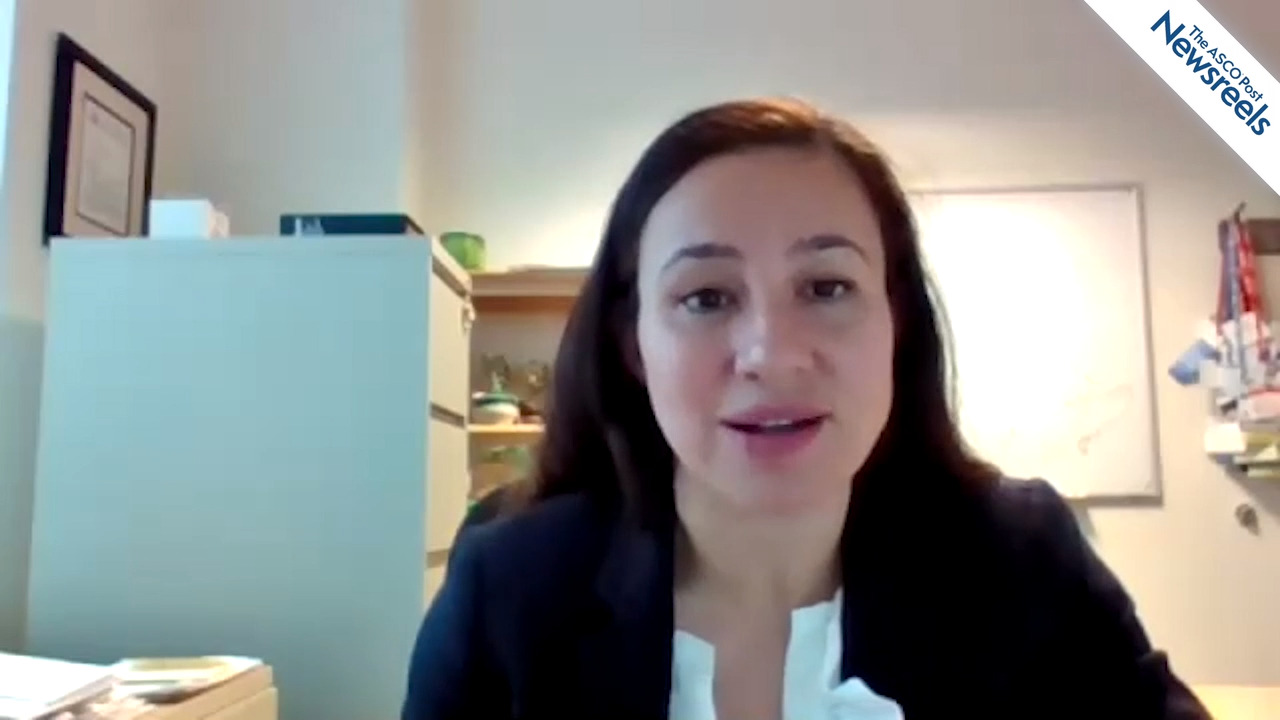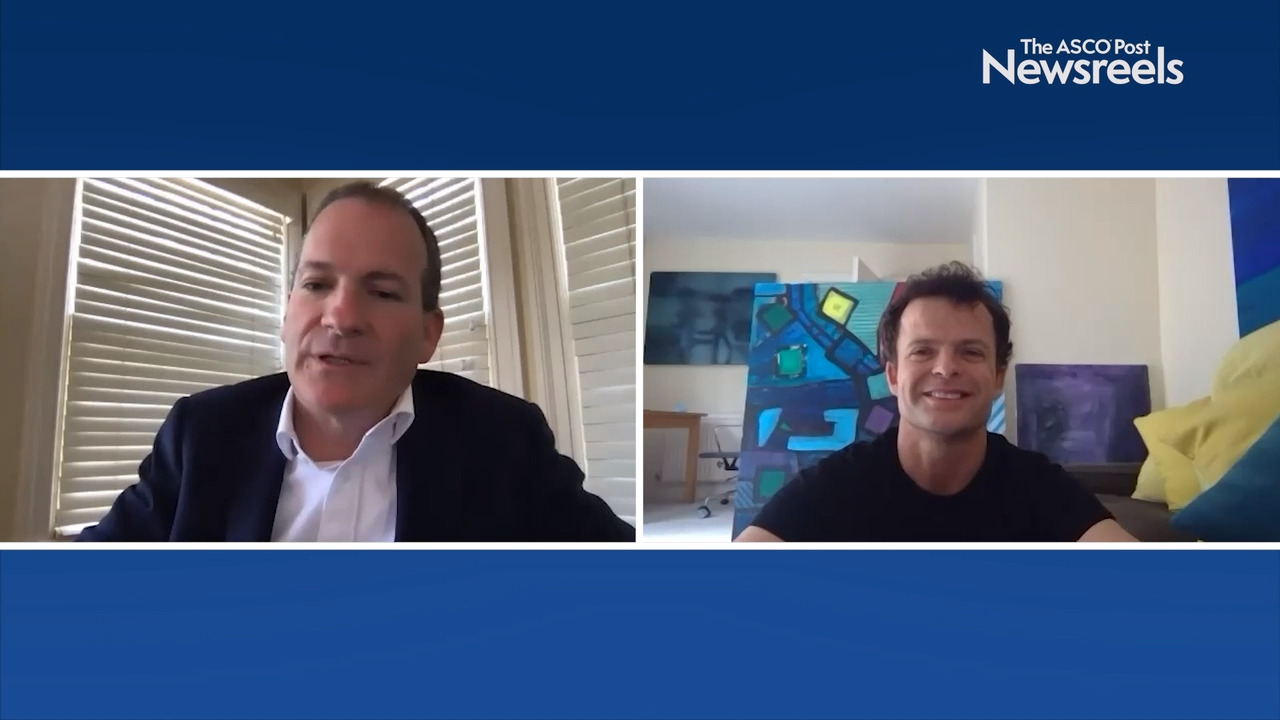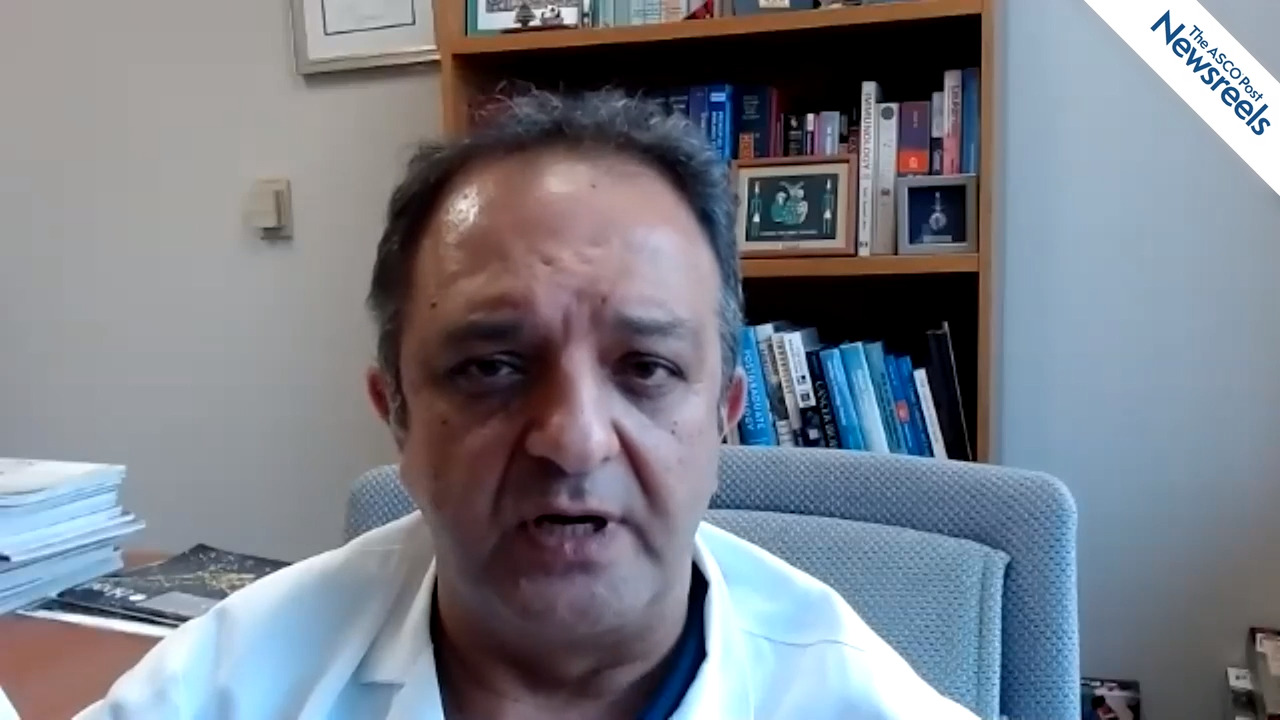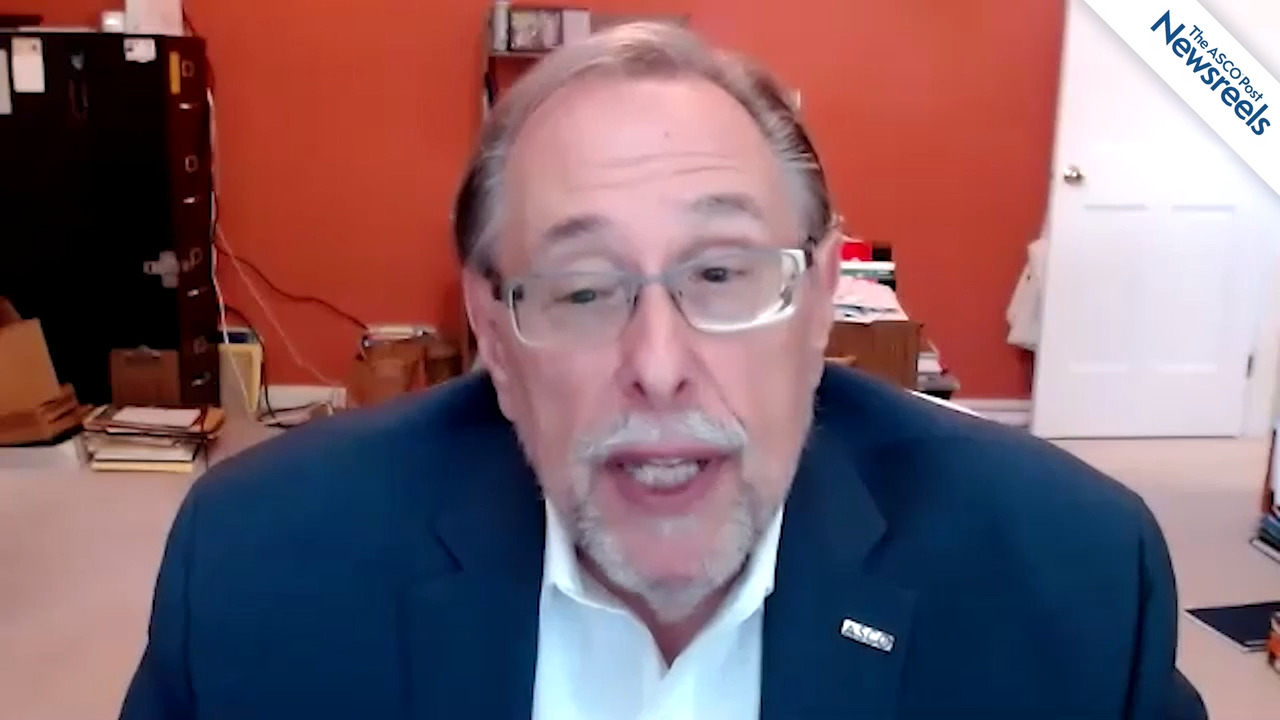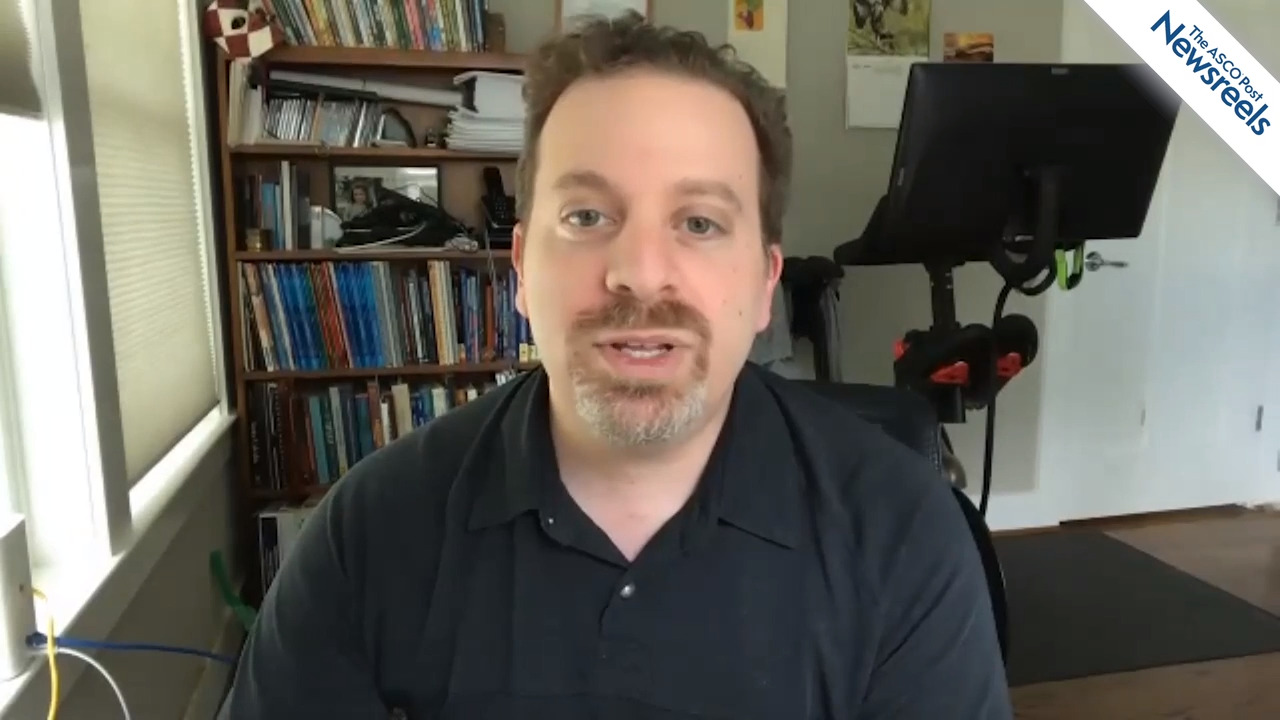Parameswaran Hari, MD, on Multiple Myeloma: Expert Commentary on Four Key Abstracts
ASCO20 Virtual Scientific Program
Parameswaran Hari, MD, of the Medical College of Wisconsin, discusses data from four trials and their clinical implications for the treatment of patients with multiple myeloma: the KarMMa and EVOLVE studies on CAR T cell therapies; SWOG-1211 on bortezomib, lenalidomide, and dexamthasone with/without elotuzumab for newly diagnosed, high-risk disease; and the GMMGCONCEPT trial on isatuximab, carfilzomib, lenalidomide, and dexamethasone in front-line treatment (Abstracts 8503, 8504, 8507, 8508).
The ASCO Post Staff
Rana R. McKay, MD, of the University of California, San Diego, discusses the results of a phase II trial of intense neoadjuvant hormone therapy followed by radical prostatectomy in men with high-risk prostate cancer. The data show that 21% of patients had a favorable pathologic response (Abstract 5503).
The ASCO Post Staff
As Thomas Powles, MD, PhD, of Queen Mary University of London, prepares to deliver his late-breaking presentation at the ASCO20 Virtual Scientific Program (LBA-1), he talks with Christopher Sweeney, MBBS, of Dana-Farber Cancer Institute, about current therapy: PD1/PDL1 inhibition in second-line treatment and as monotherapy in the first-line setting, as well as the concept of maintenance switch.
The ASCO Post Staff
Farhad Ravandi-Kashani, MD, of The University of Texas MD Anderson Cancer Center, discusses updates from a phase I dose-escalation study of AMG 330, a bispecific T-cell engager molecule. It showed early evidence of an acceptable safety profile, drug tolerability, and antileukemic activity, supporting further dose escalation in patients with acute myeloid leukemia (Abstract 7508).
The ASCO Post Staff
Richard L. Schilsky, MD, Chief Medical Officer of ASCO, talks about some of the most important and practice-changing findings presented this year at the ASCO20 Virtual Scientific Program, including the use of targeted and immunotherapies in earlier lines of therapy, where they have made a significant impact.
The ASCO Post Staff
Jeremy L. Warner, MD, of Vanderbilt-Ingram Cancer Center, discusses data from the COVID-19 and Cancer Consortium cohort study, which included patients with active or prior hematologic or invasive solid malignancies, reported across academic and community sites (Abstract LBA110).
